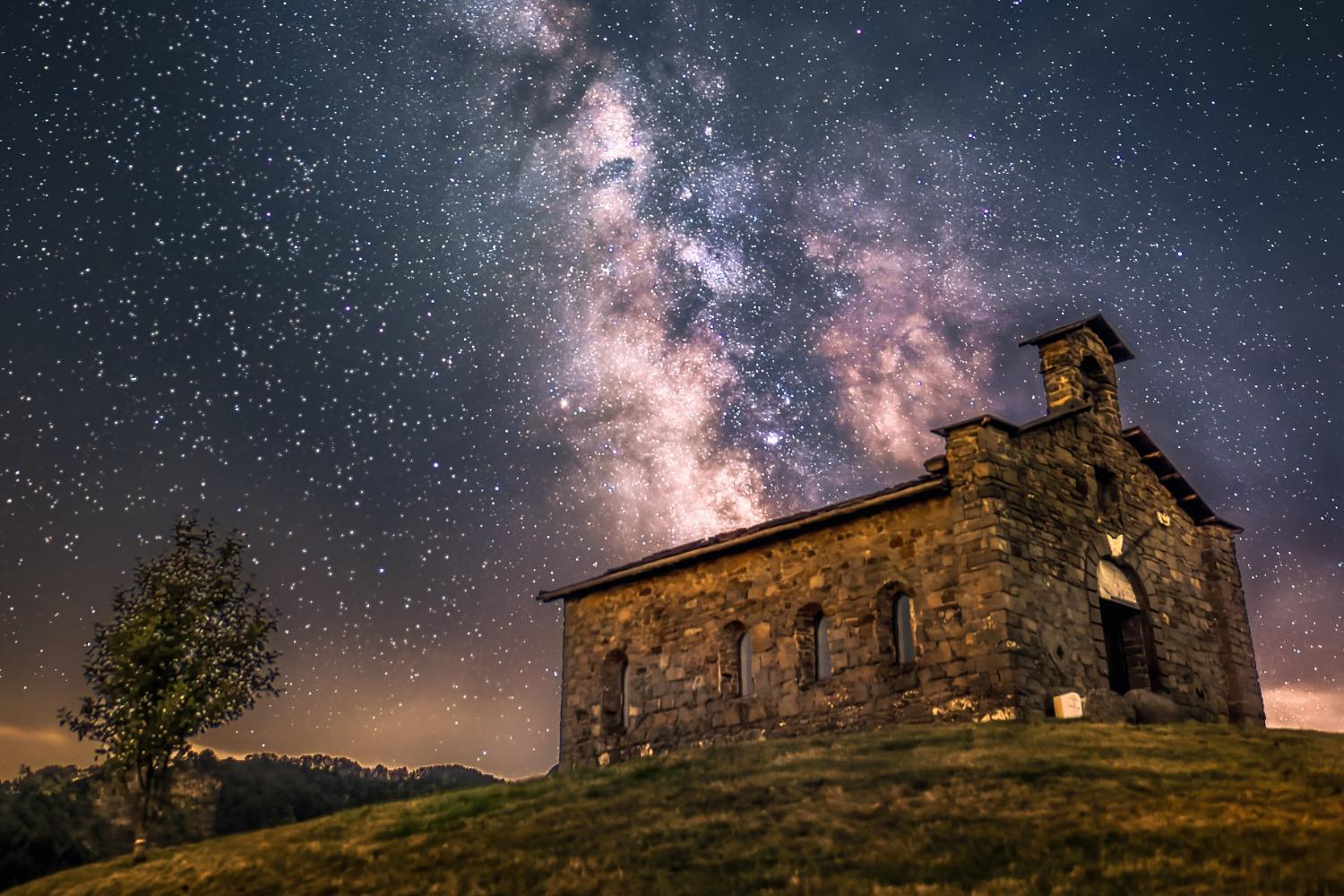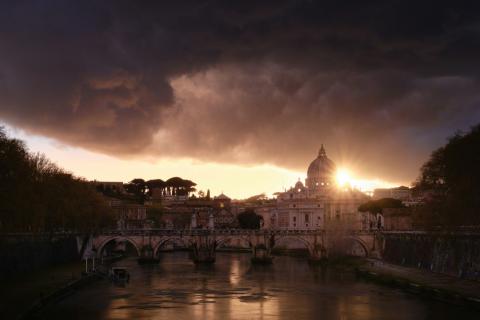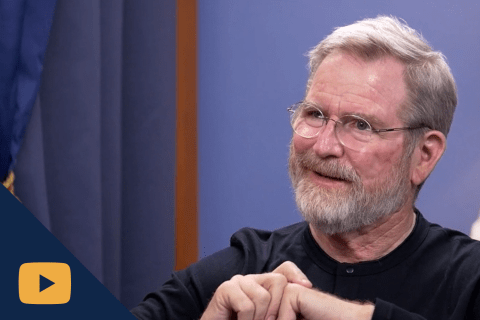
For those who believe that the universe was not created by God but instead came about by chance, the result leaves one with a rather depressing narrative about reality. In this materialistic description, everything came into existence not according to the forethought and guidance of our Creator, but through the random alignment of factors that could have just as easily resulted in a different version of reality. This myth of chance, without the governing hand of God, unfolds in several stages as described here.
An initial explosion billions of years ago released matter and energy at an accelerating rate. Why this explosion occurred when it did is not known. Yet an answer is not needed, for in this narrative, things occur unintentionally and not according to any designed pattern or underlying meaning. Overtime, the expansion of mass and energy brought about galaxies that grew to contain an assortment of stars and planets.
Within our own galaxy, the Earth eventually gave rise to the conditions by which our atmosphere, land, and water came into being. These conditions provided the environment in which plants and animals could develop that later evolved into more complex lifeforms. This formulation, of course, was random and could have just as easily produced a different set of circumstances and results. The dinosaurs, for example, were impressive in their size and variation. Yet they came and went as a passing occurrence in a meaningless series of happenstances.
Eventually, lower lifeforms evolved into human beings. The conditions that gave rise to our complex systems of inner organs, sensory perceptions, mental intelligence, and use of language all developed in ways that had no inherent value. Because there was no intrinsic meaning to this evolution of our bodies, communication, and cultures, the human person can also be seen as having no inherent value. All such insignificant realities will eventually cease to exist when the sun of our solar system dies, after which the universe may or may not continue in its current form. Yet at such point, there will not be any humans left to ponder these occurrences and the abyss of chance will continue to unfold among whatever forms of matter and energy that may remain.
If this narrative strikes you as absurd, you are in good company. Those of the Judeo-Christian tradition have known for millennia that our world is not the result of chance, but of the providential care of our heavenly Father. It is hard to believe that everything we know as reality could be the result of random occurrences. It is also hard to understand why we are so interested in finding meaning to our actions and relationships if we are the byproducts of ungoverned causes. Is the desire to have these questions answered also the result of mere chance?
The myth described above has no grounds on which to take it seriously. It lacks any basis to assert its own truthfulness or mechanism by which it should be promoted and embraced. Speaking about materialists who refuse to acknowledge the role of the Creator, C. S. Lewis once said in The Business of Heaven that “if their thoughts… are merely accidental by-products, why should we believe them to be true? I see no reason for believing that one accident should be able to give me a correct account of all the other accidents.” In the myth of chance, reason itself loses its footing on which to stand. For in a world of random accidents, there is no objective truth to build upon or assert. Consequently, all fields of study and their elaborate matrices of inner connecting truths turn out to be a mirage of opinions and impressions, never reaching to what can be known with certainty.
The Christian believer advances in life with the assurance that our circumstances are not the result of mere chance. He or she trusts in the ability to know things with confidence and can recognize that God is the author of our known world, even as it evolved over time. In this certainty, truths become inter-linked within one’s use of reason and these truths point to the source of all truth, who is God. Furthermore, the external things that we count upon as certain allow us to see reflections of the Creator who reveals His goodness in what He has provided. As the author of Psalm 8 ponders, “When I see your heavens, the work of your fingers, the moon and stars that you set in place—what is man that you are mindful of him, and a son of man that you care for him?” As the psalmist knew, the correct use of reason should not lead us to assume our surroundings are meaningless and insignificant. Instead, reason ought to lead us into deeper wonder for the beauty that we are privileged to behold, and ponder the goodness of Him to provides such surroundings and our experience of them.
The First Vatican Council taught that we can know the existence of God with certainty based on the created world around us. As such, we should never view the gift of the universe as the product of mere chance. We should, instead, relish with humble gratitude the countless ways in which the Father provides for our existence and allows us to pursue a relationship with Him. Anything less would lack appreciation for the gift of the world in which we find ourselves, and would cause offense to Him who creates and sustains such a magnificent gift.


